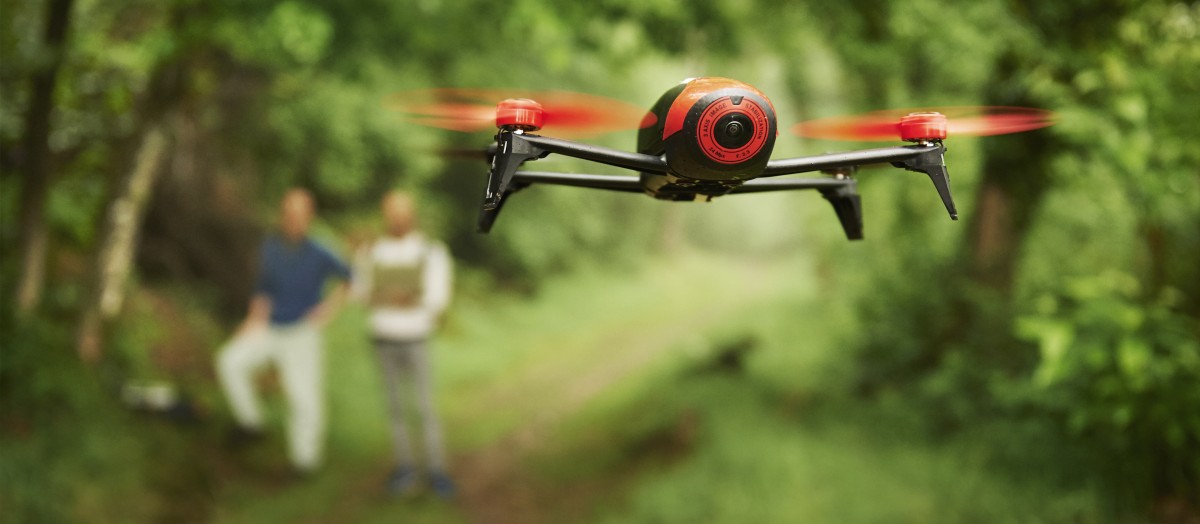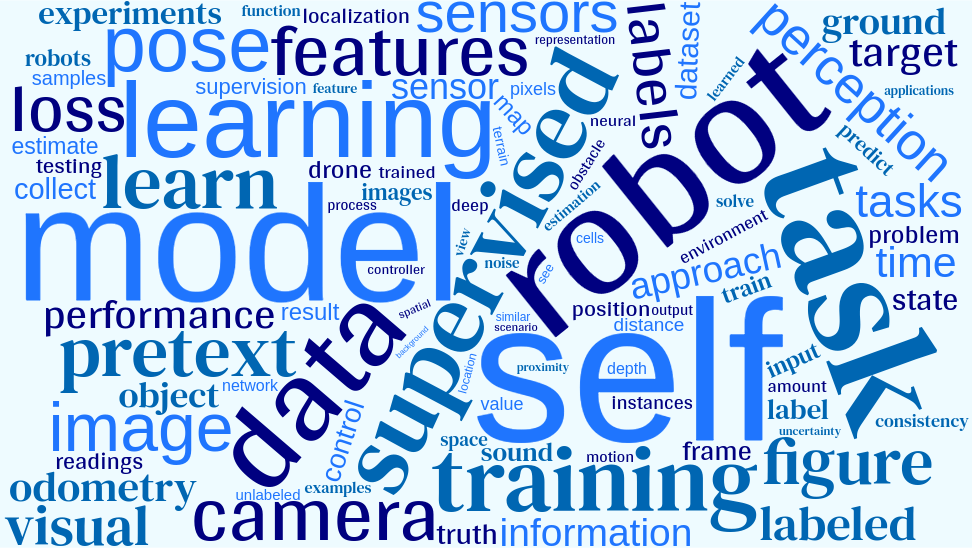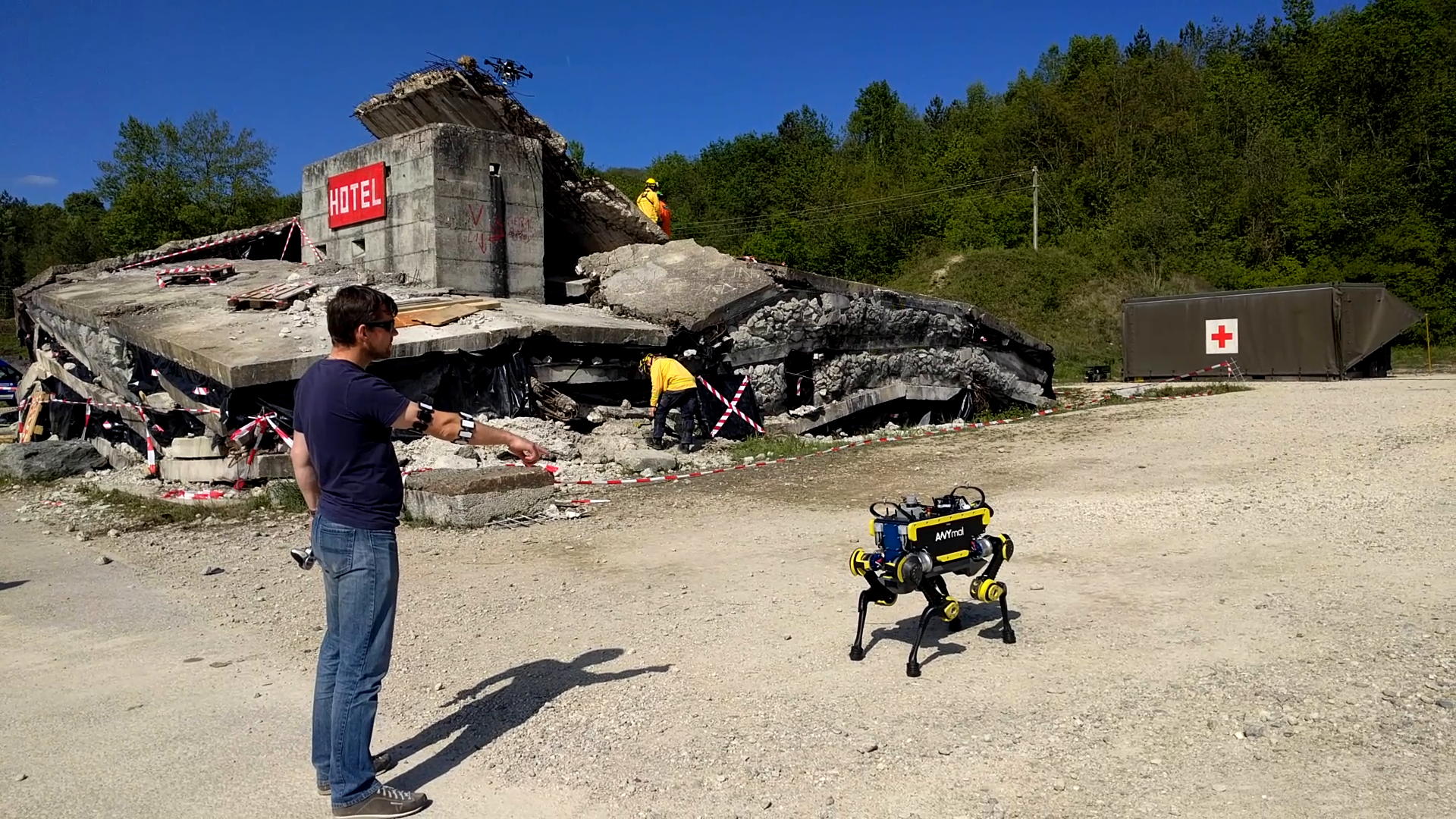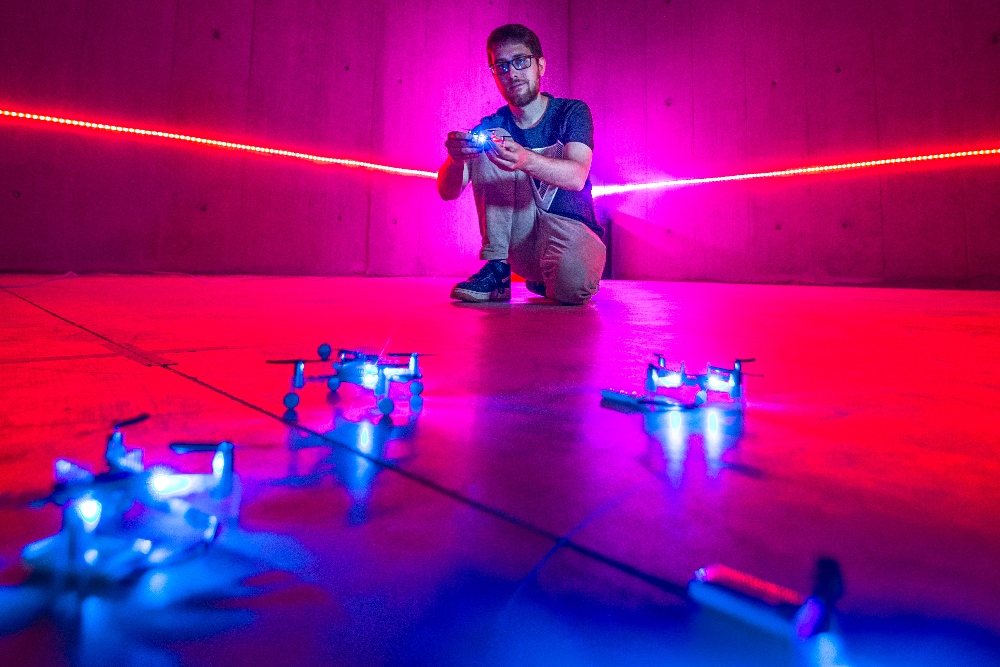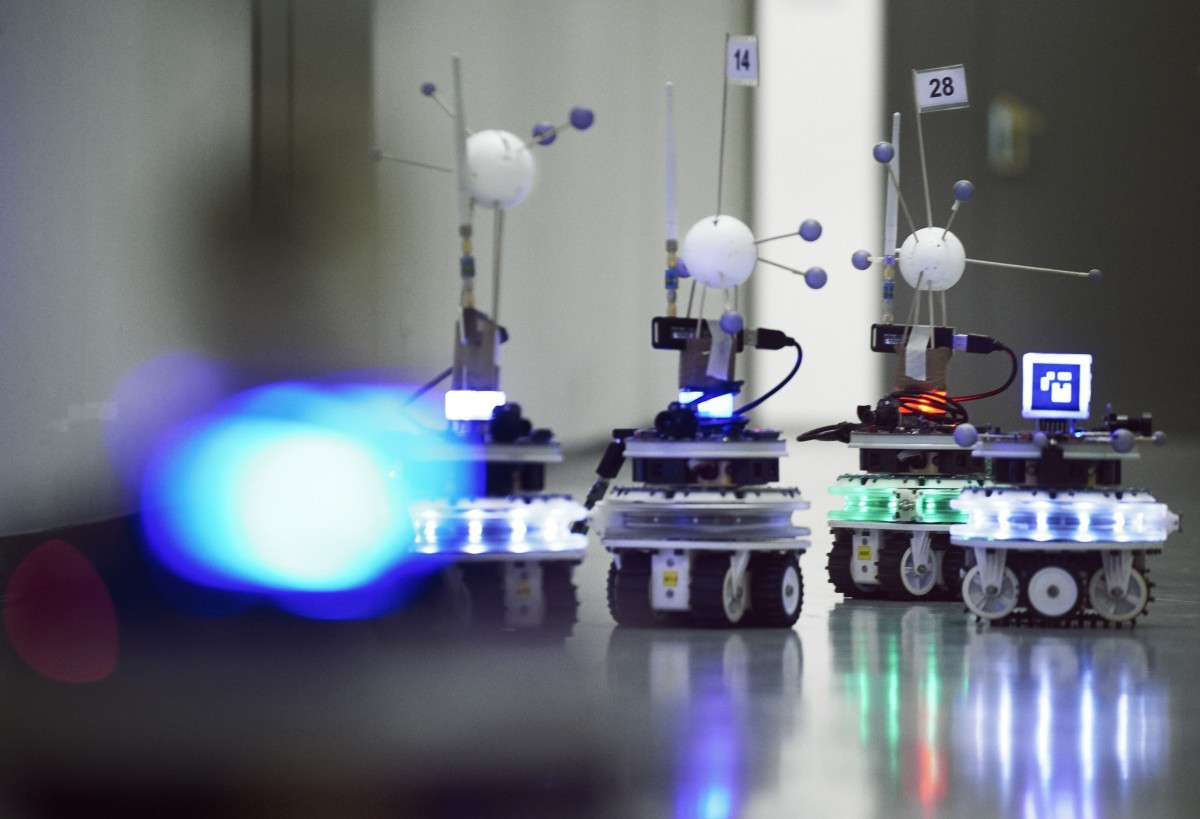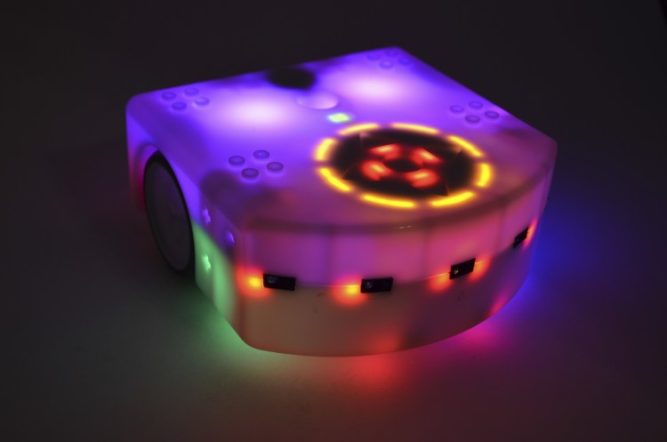About
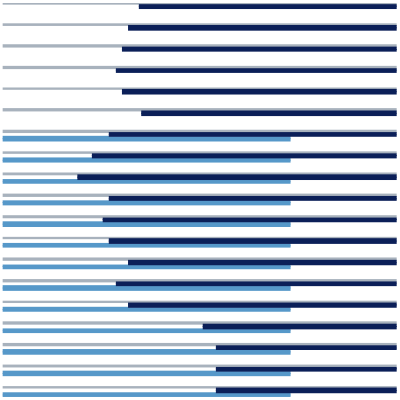
This page describes Autonomous Robotics research at IDSIA (Dalle Molle Institute for Artificial Intelligence), which is affiliated with both USI (Università della Svizzera Italiana) and SUPSI-DTI (Scuola Universitaria Professionale della Svizzera Italiana, Dipartimento di Tecnologie Innovative).
The research area is co-led by prof. Alessandro Giusti and prof. Luca M. Gambardella, and deals with both fundamental and applied research challenges. The institute has been part of the National Centre of Competence in Research Robotics for its entire duration (2010-2022): a Swiss nationwide organization funded by the Swiss National Science Foundation pulling together top researchers from all over the country with the objective of developing new, human oriented robotic technology for improving our quality of life. The institute is currently involved in many robotics research collaborations with national and international partners.
Research
We work with mobile robots (flying and ground), as well as industrial robotics; our current research focuses on the following themes.
Self-supervised learning for perception
We develop self-supervised techniques for exploiting multimodal information while learning perception models (paper, video), handle sensor uncertainty (link) and perceive long-range obstacles (link). We also deal with quadrotor control in human proximity (link) and traversability estimation for ground robots on challenging terrain (link). We gained widespread media attention for developing deep nets that guide a quadrotor to follow a forest trail (with the Robotics and Perception Group at the University of Zurich).
Social Robotics and Human-Robot Interaction
Within the SERMAS EU Project, we develop advanced perception skills for social robots; we also develop techniques based on pointing gestures sensed by wearable devices to identify, localize and control robots; possible applications span from logistics to precision quadrotor control without any previous training.
AI-based Nanorobotics
The Nanorobotics Research Group is active in several cutting-edge projects, deploying State-of-the-Art deep learning techniques for perception on ultra-constrained palm-sized nano-drones.
Collaboration and planning in multi-robot systems
We are exploring the use of artificial emotions for facilitating multi-robot coordination; in the same field, we previously developed human-friendly robot navigation algorithms and many other works
Applied machine learning for industrial robotics
We are active in several applied projects, deploying state-of-the-art deep learning techniques in various areas of industrial robotics
Robotics for education
Using robots in education is a very important interdisciplinary field of research, at the crossing between educational sciences and robotics. We have been part of ‘Introducing People to Research in Robotics through an Extended Peer Community in Southern Switzerland’: a project awarded the Optimus Agora Prize by the Swiss National Science Foundation
News
Aug 2025
Our paper “Self-supervised Learning Of Visual Pose Estimation Without Pose Labels By Classifying LED States” was accepted for publication at CoRL 2025. Read more about our self-supervised robot learning research.
Feb 2025
Our new journal article, “An Efficient Ground-aerial Transportation System for Pest Control Enabled by AI-based Autonomous Nano-UAVs,” has just been accepted for publication in the ACM Journal on Autonomous Transportation Systems. arXiv preprint. Read more about our nanorobotics research.
Jan 2025
Check out our ICRA 2025 paper, “A Map-free Deep Learning-based Framework for Gate-to-Gate Monocular Visual Navigation aboard Miniaturized Aerial Vehicles”. arXiv preprint demo video. Read more about our nanorobotics research.
July 2024
Check out our accepted papers at IROS 2024:
- “Resource-Aware Collaborative Monte Carlo Localization with Distribution Compression” arXiv preprint
- “Learning to Estimate the Pose of a Peer Robot in a Camera Image by Predicting the States of its LEDs” arXiv preprint. Additional results on this topic will also be presented as an extended abstract at ICRA@40: “Multi-LED Classification as Pretext For Robot Heading Estimation”
- “A Service Robot in the Wild: Analysis of Users Intentions, Robot Behaviors, and Their Mutual Impact”
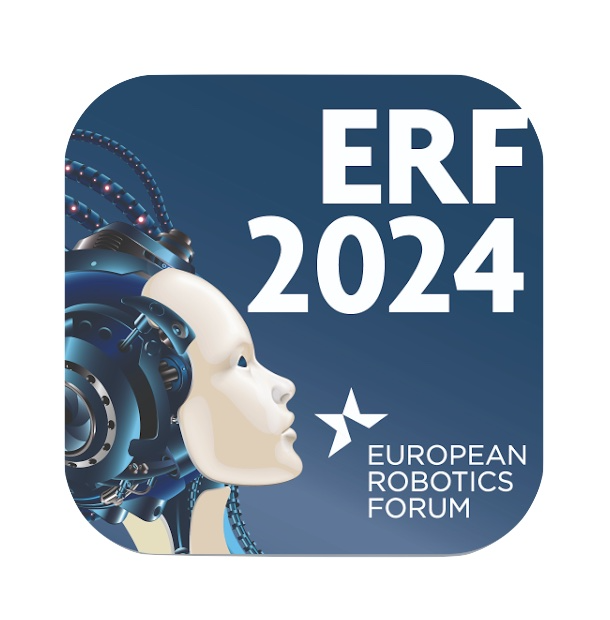
Jun 19 2024
Congrats to our nanorobotics group for their paper, “Multi-resolution Rescored ByteTrack for Video Object Detection on Ultra-low-power Embedded Systems,” coauthored with UNIBO, KUL, and ETHZ, that got the Best Paper Award at the 20th Embedded Vision Workshop in conjunction with the CVPR Conference in Seattle, Washington, USA. CVF open access
Mar 15 2024
Our paper “Fusing Multi-sensor Input with State Information on TinyML Brains for Autonomous Nano-drones” was presented at the European Robotics Forum 2024 arXiv preprint.

Mar 15 2024
Our paper “A Deep Learning-based Pest Insect Monitoring System for Ultra-low Power Pocket-sized Drones” was accepted for publication in the Wi-DroIT 2024 workshop.
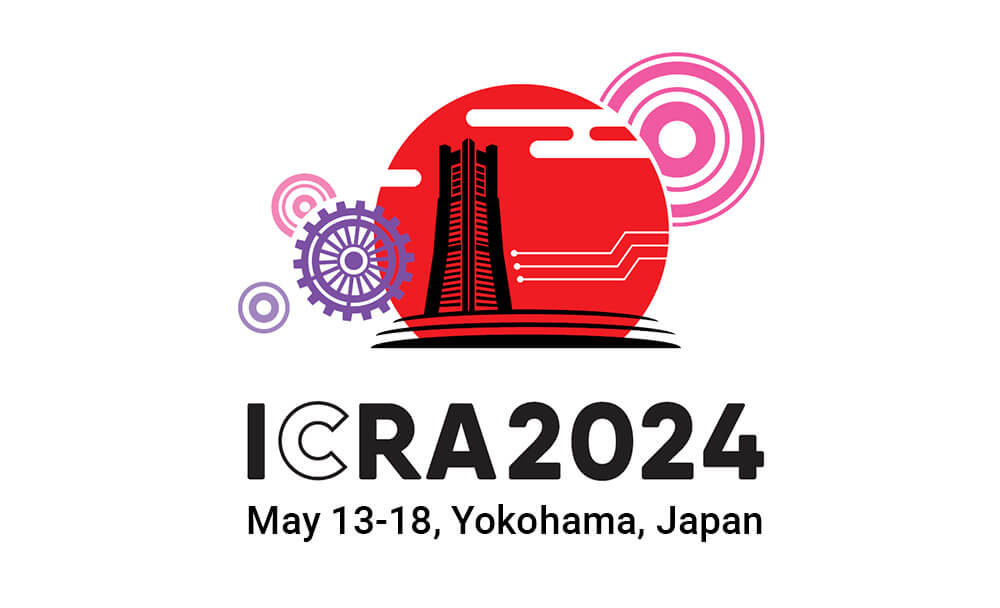
Jan 29 2024
Check out our three accepted papers at ICRA 2024:
- “Predicting the Intention to Interact with a Service Robot: the Role of Gaze Cues”
- “On-device Self-supervised Learning of Visual Perception Tasks aboard Hardware-limited Nano-quadrotors” arXiv preprint
- “High-throughput Visual Nano-drone to Nano-drone Relative Localization using Onboard Fully Convolutional Networks” arXiv preprint
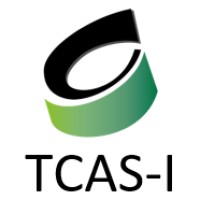
Jan 19, 2024
We contributed to the novel paper “A Heterogeneous RISC-V based SoC for Secure Nano-UAV Navigation,” which was just accepted at the IEEE Transactions on Circuits and Systems I (TCAS-I). arXiv preprint.
Jan 2024
Our paper “Self-Supervised Learning of Visual Robot Localization Using LED State Prediction as a Pretext Task” was accepted for publication in the IEEE Robotics and Automation Letters (RA-L).
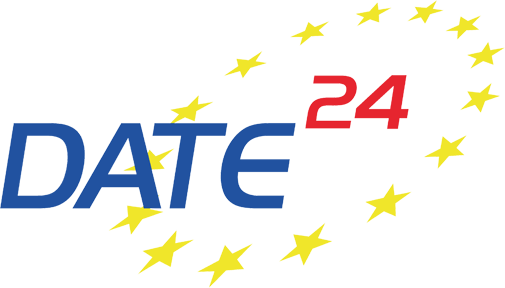
Dec 18, 2023
Our new paper, “Adaptive Deep Learning for Efficient Visual Pose Estimation aboard Ultra-low-power Nano-drones,” in collaboration with Politecnico di Torino, has just been accepted at ACM Design, Automation and Test in Europe Conference (DATE’24). arXiv preprint.
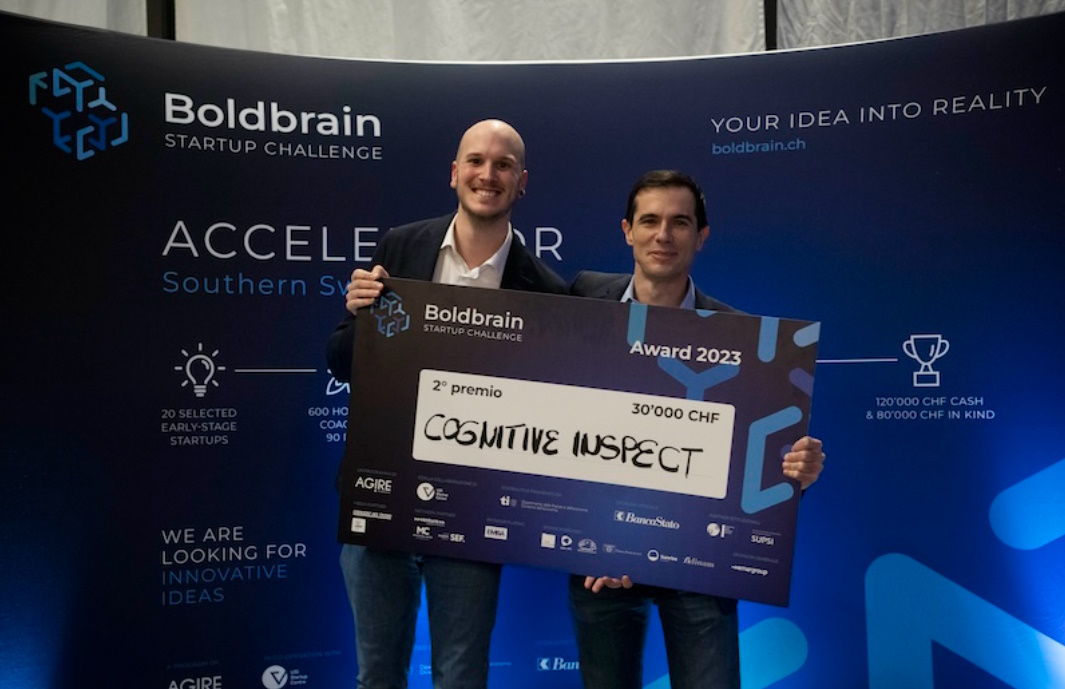
Dec 7 2023
Congratulations to Dario Mantegazza, PhD candidate in our group. His startup Cognitive Inspect ranked second in the 2023 Boldbrain Startup Challenge, and was awarded a 30’000 CHF cash prize. Cognitive Inspect aims to provide an automated Visual Anomaly Detection service for industries that deploy robotized inspection processes.
Dec 2023
Check out our two new journal papers:
- “A Mirror Therapy System Using Virtual Reality and an Actuated Exoskeleton for the Recovery of Hand Motor Impairments: a Study of Acceptability, Usability, and Embodiment”, just accepted to Nature Scientific Reports.
- “A Sim-to-Real Deep Learning-based Framework for Autonomous Nano-drone Racing”, just accepted to the IEEE Robotics and Automation Letters (RA-L). arXiv preprint video. Describes our autonomous navigation and obstacle avoidance system for palm-sized quadrotors, developed in collaboration with Università di Bologna and TII Abu Dhabi and winner of the 1st Nanocopter AI Challenge at IMAV 2022, Delft, Netherlands.
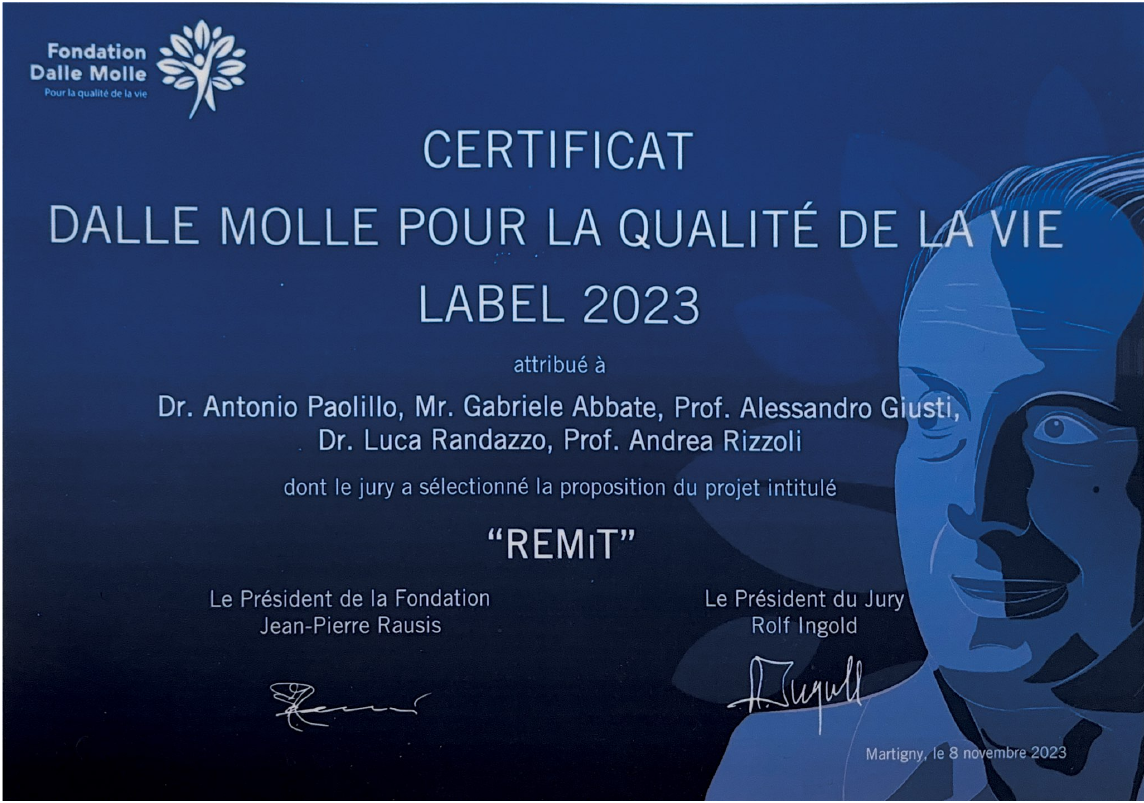
Nov 2023
Our researcher Dr. Antonio Paolillo and team have been awarded the “Quality of Life” prize from “Fondation Dalle Molle pour la qualité de la vie” for the project “Remotely-assisted Enhanced Mirror Therapy (REMiT)”. The project uses virtual reality and a hand exoskeleton to enhance mirror therapy for the recovery of lost hand functionalities.
Oct 2023
Our paper “Self-Supervised Prediction of the Intention to Interact with a Service Robot” (preprint), stemming from a collaboration with the King’s College London within the SERMAS EU Project, has been accepted for publication on Robotics and Autonomous Systems. The work proposes a learning-based approach to predict the probability that a human user will interact with a robot, well before the interaction actually begins.
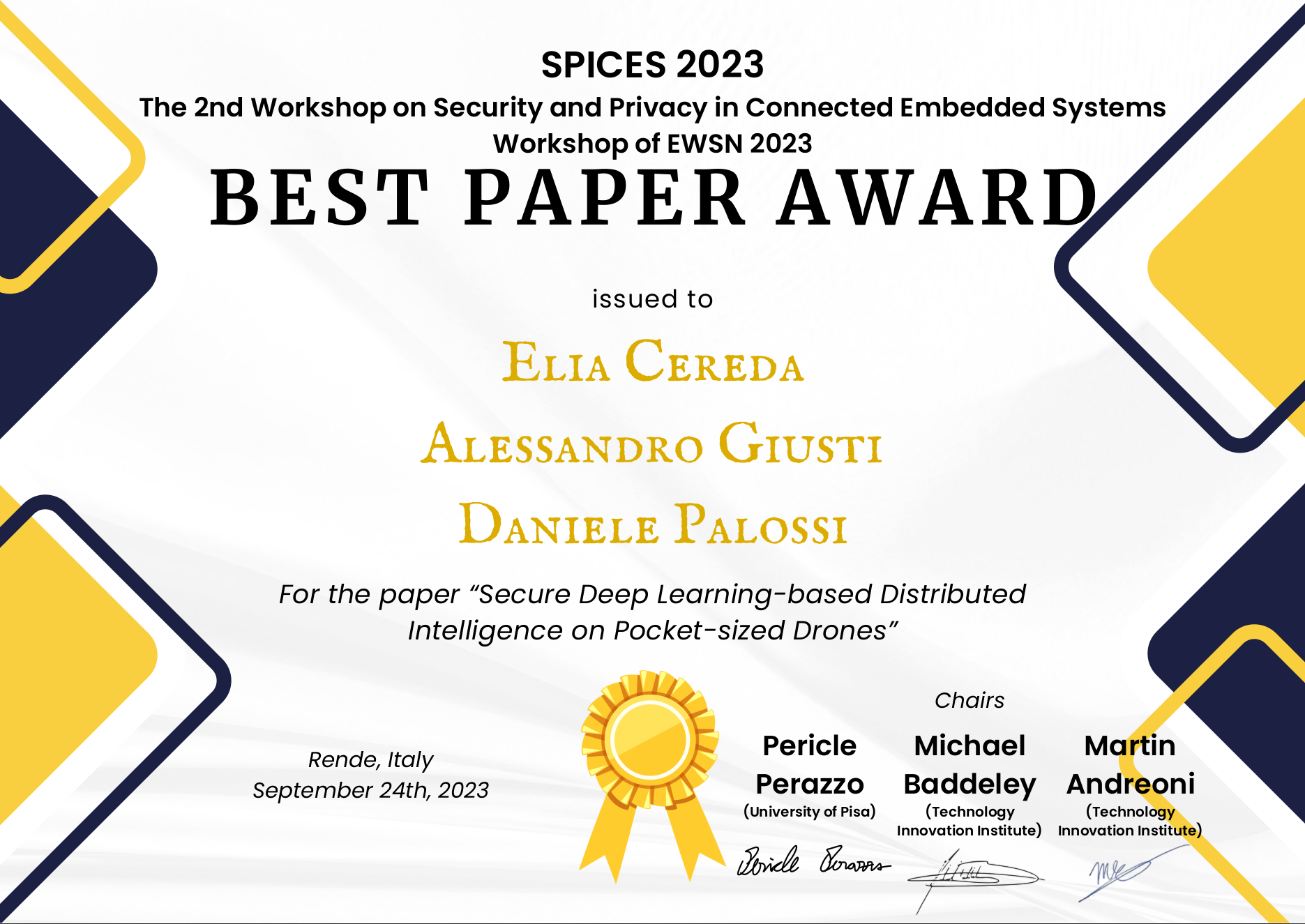
Sep 25 2023
Our paper “Secure Deep Learning-based Distributed Intelligence on Pocket-sized Drones” received the Best Paper Award at the 2nd Workshop on Security and Privacy in Connected Embedded Systems (SPICES) during the ACM EWSN’23 conference in Rende, Italy, 25-27 September 2023. Our work proposes a secure computational paradigm for deep learning workloads that allows resource-constrained devices, such as nano-drones, to take advantage of powerful remote computation nodes while preserving security against external attackers.
Mar 2023
Our activities on the use of virtual reality and wearable robotics for hand rehabilitation are featured on Swiss TV, Radiotelevisione Svizzera (RSI)! Watch the video!
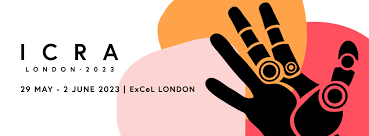
Jan 17 2023
Three new papers have just been accepted at ICRA’23. “Dynamical System-based Imitation Learning for Visual Servoing using the Large Projection Formulation,” “Deep Neural Network Architecture Search for Accurate Visual Pose Estimation aboard Nano-UAVs,” arXiv preprint demo-video and “Ultra-low Power Deep Learning-based Monocular Relative Localization Onboard Nano-quadrotors” arXiv preprint demo-video.
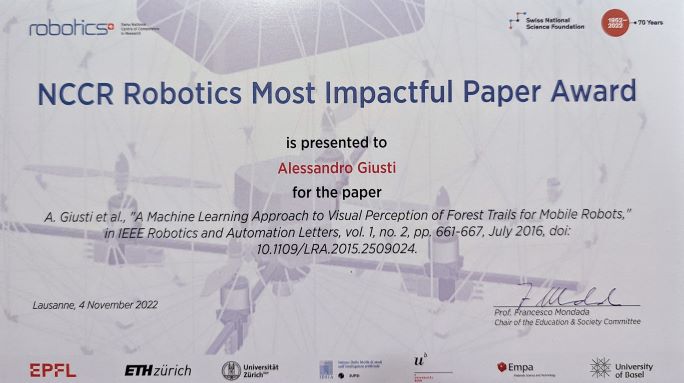
Nov 5 2022
Our 2016 paper “A Machine Learning Approach to the Visual Perception of Forest Trails for Mobile Robots” has received the “NCCR Robotics Most Impactful Paper Award”. One such award was given for each of the three grand challenges of the 12-year NCCR Robotics.
Nov 4 2022
Our research on nanodrones is covered by the swiss public TV program “Il Quotidiano”. Link, jump at minute 23:47.
Nov 4-5 2022
Interactive demonstrations of our research on pointing-based human-robot interaction shown to hundreds of people (both robotics professionals and the general public) at the Swiss Robotics Day 2022, at the Palais de Beaulieu, Lausanne.
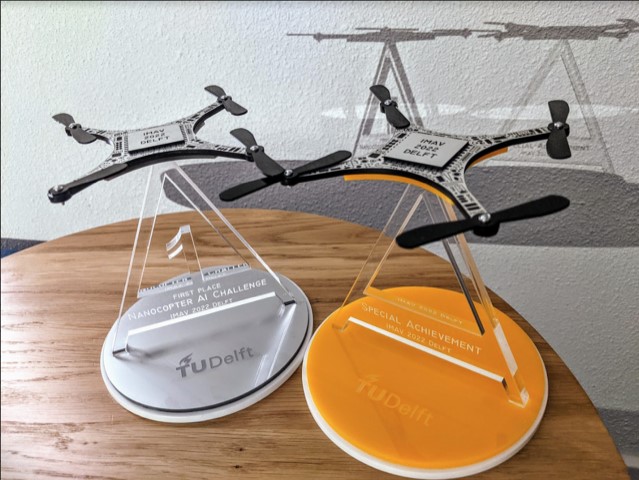
Sep 19 2022
The PULP team, composed of a group of researchers from IDSIA, Università di Bologna and TII Abu Dhabi, won the 1st Nanocopter AI challenge. The international competition was held in Delft on the 13th of September, and the teams were tasked with developing a palm-sized quadrotor’s intelligence to enable autonomous navigation in an unknown environment cluttered with fixed and moving obstacles. The PULP team was ranked first, beating teams from Brazil, Spain, and the Netherlands, thanks to onboard artificial intelligence capable of long collision-free flights. They scored a remarkable 110 meters autonomous flight in 5 minutes, avoiding all moving obstacles. The PULP team was the first collaboration between research institutions at the forefront of nano-robotics research and innovation. The IDSIA part of the team was led by Dr. Daniele Palossi and composed by Elia Cereda (Ph.D. student), who was on the field in Delft, and the support team in Lugano: Gabriele Abbate (researcher) and Prof. Alessandro Giusti.
Jul 21 2022
Check out our recent paper, published to the IEEE Robotics and Automation Letters with ICRA 2022 presentation: “An Outlier Exposure Approach to Improve Visual Anomaly Detection Performance for Mobile Robots”. Videos, datasets and code can be found on the dedicated page.
Apr 13 2022
Congratulations to Antonio Paolillo for publication of his Science Robotics paper How to compete with robots by assessing job automation risks and resilient alternatives.
Feb 10 2022
Check out our recent paper, published to the IEEE Robotics and Automation Letters with ICRA 2022 presentation: “Learning Visual Localization of a Quadrotor Using its Noise as Self-Supervision”. Videos, datasets and code can be found on the dedicated page.
Nov 29 2021
Check out our new video “PULP-Frontnet – Fully Onboard AI-powered Human-Drone Pose Estimation on Autonomous Flying Nano-UAVs,” available on the “IDSIA Robotics Youtube channel.”
Nov 18 2021
Check out our recent paper, published to the 17th IEEE International Conference on Distributed Computing in Sensor Systems (DCOSS): “Improving the Generalization Capability of DNNs for Ultra-low Power Autonomous Nano-UAVs.”
Jun 25 2021
Check out our recent paper, published to the IEEE Robotics and Automation Letters with IROS 2021 presentation: “Uncertainty-Aware Self-Supervised Learning of Spatial Perception Tasks”. Videos, datasets and code can be found on the dedicated page.
Jun 22 2021
Our recent paper “Fully Onboard AI-powered Human-Drone Pose Estimation on Ultra-low Power Autonomous Flying Nano-UAVs,” has been published in the IEEE Internet of Things Journal.
Mar 25 2021
Check out our new preprint paper on arXiv, “Fully Onboard AI-powered Human-Drone Pose Estimation on Ultra-low Power Autonomous Flying Nano-UAVs,” made in collaboration with ETH Zürich, with the University of Bonn, and the University of Bologna.
Feb 28 2021
Check out our recent open access paper, accepted to the IEEE Robotics and Automation Letters with ICRA 2021 presentation: “State-Consistency Loss for Learning Spatial Perception Tasks from Partial Labels”. more info & videos
We are also presenting at ICRA 2021: Gabriele Abbate, Boris Gromov, Luca Gambardella, Alessandro Giusti: “Pointing at Moving Robots: Detecting Events from Wrist IMU Data” more info & videos
May 20 2020
Our highly-cited paper “Machine-Learning Method for Quality of Transmission Prediction of Unestablished Lightpaths” (with Cristina Rottondi and colleagues) published on the IEEE/OSA Journal of Optical Communications and Networking won the prestigious “IEEE Communications Society Charles Kao Award”.
Feb 10 2020
Check out our recent paper, accepted to the IEEE Robotics and Automation Letters with ICRA 2020 presentation: “Path Planning With Local Motion Estimations”. code.
We are presenting one additional paper at ICRA 2020: Boris Gromov, Jerome Guzzi, Luca Gambardella, and Alessandro Giusti: “Intuitive 3D Control of a Quadrotor in User Proximity with Pointing Gestures” more info
Sep 12 2019
The survey article “The current state and future outlook of rescue robotics”, which we contributed to in the context of the NCCR Robotics, is now published in the Journal of Field Robotics.
Sep 4 2019
Neural Rope, an interactive, public art installation by Prof. Gambardella and artist Alex Dorici, is now live and on permanent display in the Lugano Station Underpass. The ML and software infrastructure was designed and implemented by us. The opening was broadcast live on national TV during the 2019 Swiss Digital Day.
Mar 22 2019
Congratulations to our student Simone Mellace, who won the Swissengineering Best Thesis Award for his work on Realtime Generation of Audible Textures Inspired by a Video Stream!
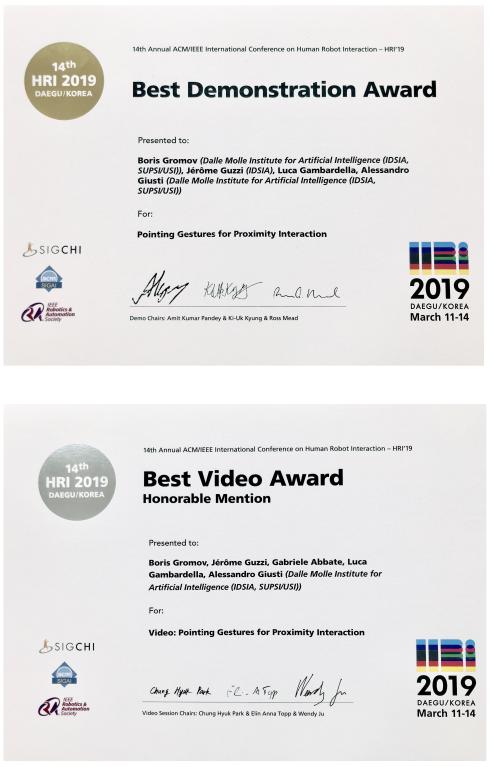
Mar 14 2019
Research on pointing gestures for proximity interaction by our PhD student Boris Gromov got the best demonstration award and an honorable mention for the best video award at HRI 2019! Congratulations!
Jan 26 2019
Check out our recent paper, accepted to the IEEE Robotics and Automation Letters with ICRA 2019 presentation: Mirko Nava, Jérôme Guzzi, R. Omar Chavez-Garcia, Luca M. Gambardella and Alessandro Giusti: Learning Long-range Perception using Self-Supervision from Short-Range Sensors and Odometry more info
We have three other papers accepted at ICRA 2019:
- Jérôme Guzzi, R. Omar Chavez-Garcia, Luca Maria Gambardella, and Alessandro Giusti: On the Impact of Uncertainty for Path Planning
- Boris Gromov, Gabriele Abbate, Luca Gambardella, and Alessandro Giusti: Proximity Human-Robot Interaction Using Pointing Gestures and a Wrist-mounted IMU more info
- Dario Mantegazza, Jérôme Guzzi, Luca Maria Gambardella, and Alessandro Giusti: Vision-based Control of a Quadrotor in User Proximity: Mediated vs End-to-End Learning Approaches more info
Dec 22 2018
Two videos and one demo accepted at HRI 2019!
Oct 27 2018
Two demos accepted at AAAI 2019:
- Simone Mellace, Jerome Guzzi, Alessandro Giusti and Luca Maria Gambardella: Realtime Generation of Audible Textures Inspired by a Video Stream more info
- Mirko Nava, Jérôme Guzzi, Ricardo Omar Chavez-Garcia, Luca Maria Gambardella and Alessandro Giusti: Learning to perceive long-range obstacles using self-supervision from short-range sensors more info
Oct 8-9 2018
Our intuitive gesture-based human-drone interaction techniques were demonstrated live during HUBWeek in Boston. Press coverage from the Boston Globe. Related papers and videos
A drone that can be controlled with the mere movement of an arm? @IDSIARobotics makes the fantasy come true...#HWOpenDoors #SwissTouch #DroneFrontier #Swiss4Tech pic.twitter.com/yNK7hlkmiX
— swissnex Boston (@swissnexBoston) October 8, 2018
Oct 1 2018
We received an Optimus Agora’ Award from the Swiss National Science Foundation for the project Introducing People to Research in Robotics through an Extended Peer Community in Southern Switzerland, a joint effort by the Educational Robotics group at SUPSI and the Laboratoire de Systèmes Robotiques at EPFL.
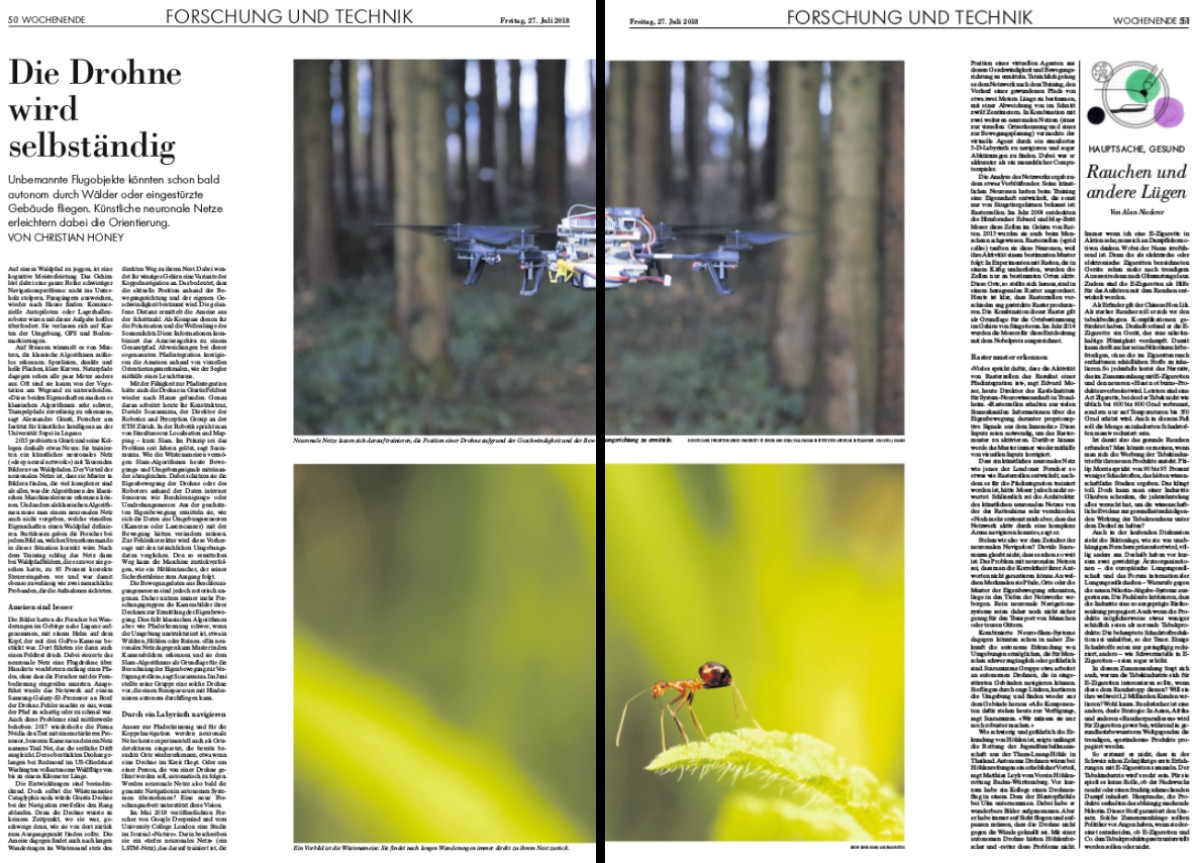
Jul 27 2018
Our research was featured in the Neue Zürcher Zeitung, one of the most prestigious daily swiss newspapers.
Jun 29 2018
Our paper “Robot Identification and Localization with Pointing Gestures” was accepted at IROS 2018. Details
Jun 27 2018
Congratulations to Jerome Guzzi, who successfully defended his PhD thesis at USI.
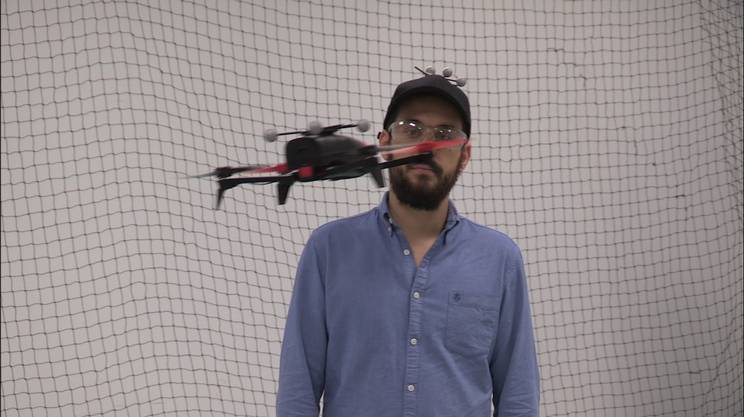
Jus 21 2018
RSI, the italian-speaking swiss public broadcasting corporation, covered our drone research and filmed their journalists interacting with our robots.
Mar 24 2018
Our paper “A model of artificial emotions for behavior modulation and implicit coordination in multi-robot systems” was accepted at GECCO 2018 in the Swarm Intelligence Track (acceptance rate 22%). Details
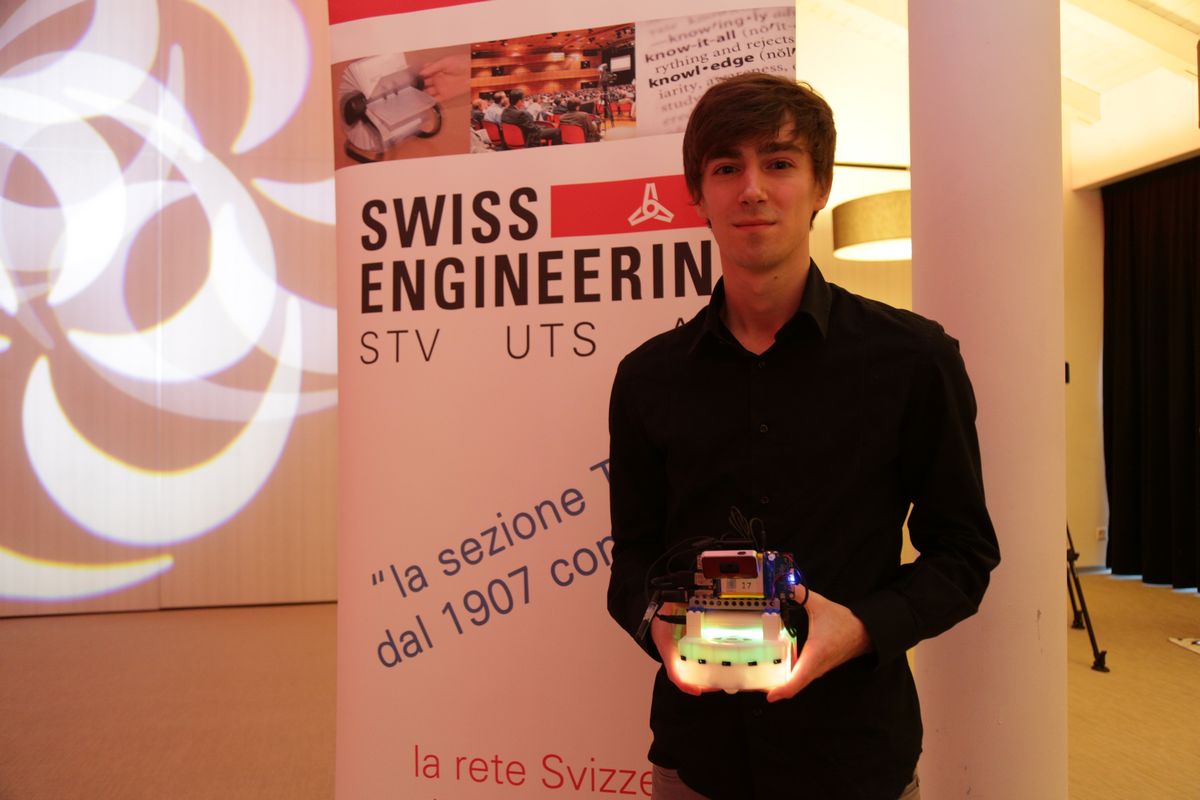
Mar 15 2018
Congratulations to our BSc Students Stefano Toniolo and Denis Broggini. Stefano won the Swissengineering Talent Ticino Prize for his work on self-supervised learning for obstacle detection. Denis won the best presentation award for his work on ML for poinging gesture detection using wearable IMUs.
Feb 5 2018
Our self-supervised learning techniques demonstrated to the public during the AAAI 2018 demo session (link)
Jan 26 2018
CNN journalists from Connect the World filmed our robots in action.
Jan 15 2018
Our paper on Learning Ground Traversability from Simulations accepted for the IEEE Robotics and Automation Letters (arxiv)
Dec 23 2017
Our video “landing a drone with pointing gestures” was accepted at HRI 2018. Details
Dec 12 2017
With several other NCCR Robotics laboratories we have been collaborating on an integrative demo project targeted at rescue missions. The resulting video, which was recorded during the live demo held in Lausanne in Nov 2017, features some of our research about human-robot interaction and machine learning for traversability estimation.
Work with us
Open positions at SUPSI and USI. Contact us for any inquiry.
